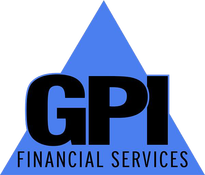|
The COVID-19 pandemic has brought mental health to the forefront for many people, as they tried to cope with abrupt changes to their work and social lives, isolation, fear of getting sick and losing loved ones to the disease. Even now, as the pandemic ebbs, the mental health crisis has not. A recent National Safety Council survey of 1,600 employers and 7,000-plus workers found that half of large employers saw an increase in mental health or impairment-related absences and incidents. Meanwhile, mental health has become American's biggest health concern, overtaking COVID-19, according to a study by Ipsos. The number of Americans who said COVID was one of the biggest health concerns in the U.S. dropped from 68% in 2021 to 43% in 2022. Meanwhile, more Americans rated mental health as one of their top health concerns, rising from 35% in 2021 to 51% over the same time frame. Fortunately, employers can step up their efforts to help employees dealing with mental health issues by offering an employee assistance program (EAP). Many employers already have. According to the NSC study, 25% of organizations with an employee assistance program implemented that program during the pandemic, while 66% expanded their offerings. If you do not already have an EAP, you may want to learn more about them as it can be crucial to helping struggling workers. What's an EAP?An EAP is an intervention program designed to help employees resolve personal problems that might be affecting their work performance. Many employers make EAP services available to employees' family members, as well. These programs can help cover the costs of counseling services that employees seek out. An EAP provides outside counselors, resources, and referrals to assist employees and their family members. Any EAP benefit received by employees or family members remain confidential. Employers do not get to know who is utilizing the service, what the reasons are for, or how often employees call. Typical services include:
A study by the University of Warwick in the U.K. found that satisfied workers are 12% more productive and provide better customer service than their less happy peers. The study found that employers who implement EAPs experience:
EAPs also help managers to become more effective. They can help them develop skills in consulting with employees, managing workplace stress, maintaining drug-free workplaces, responding to crises, and helping employees achieve an appropriate work-life balance. EAP optionsEmployers have several options for establishing EAPs. They can run them with their own staff or outsource them to third party providers. Providers can be hired on a fee-for-service basis or for a fixed fee. They can be arranged by single employers, groups of small employers banding together, or by unions. Some employers or unions even train employees to provide peer counseling to their fellow workers. EAP providers should meet the standards set by the Employee Assistance Professionals Association. These include standards for program design; management and administration; confidentiality; direct services; drug-free workplace and substance-abuse professional services; partnerships; and evaluation of the program. The takeawayBesides COVID-19, employees are subject to the stresses of day-to-day living, sudden illnesses or deaths of loved ones, natural catastrophes and work. Family members can develop substance-abuse problems, parents grow old and need care; unexpected financial shocks occur; and marriages often deteriorate.
By implementing an EAP, an employer can help make these problems, and the shock of a natural disaster, a little easier for their employees to manage. EAPs can help retain good employees, make them more productive, and make their lives a little better. In turn, this can make a business more profitable and a better place to work.
0 Comments
Leave a Reply. |
Media Inquiries(404) 484-3638 Archives
July 2023
Categories
All
|
Licensed in Georgia, Alabama, California, Florida, North Carolina, Ohio, South Carolina, and Virginia
Navigation |
Connect With UsShare This Page |
Contact UsGPI Financial Services2400 Herodian Way SESuite#220
Smyrna, GA 30080 (404) 484-3638 Click Here to Email Us |
Location |
Website by InsuranceSplash


 RSS Feed
RSS Feed